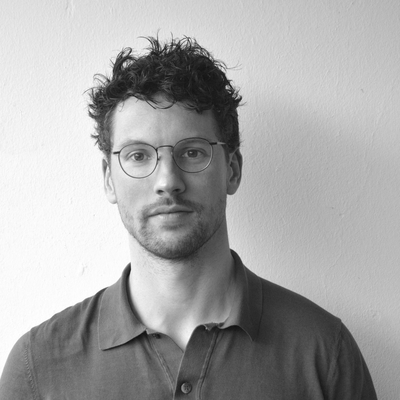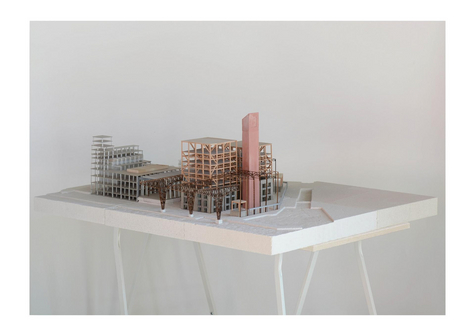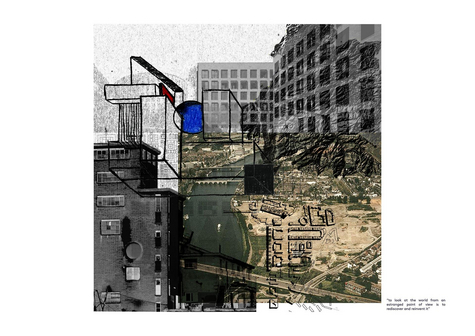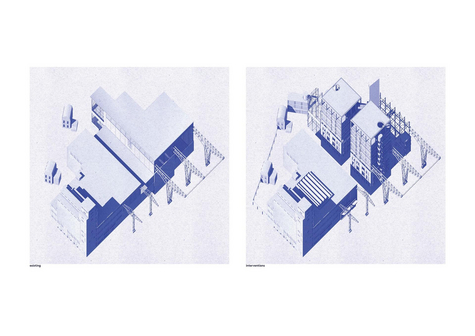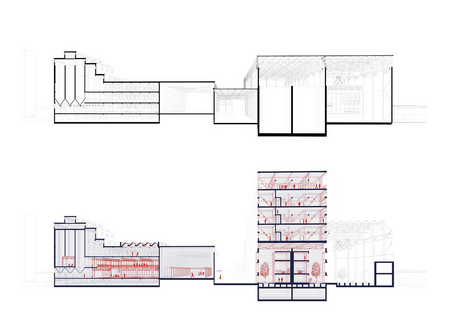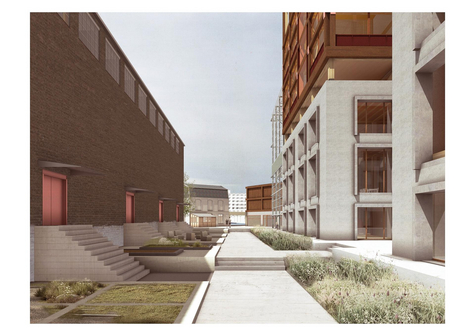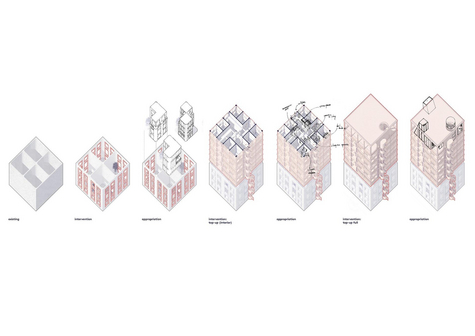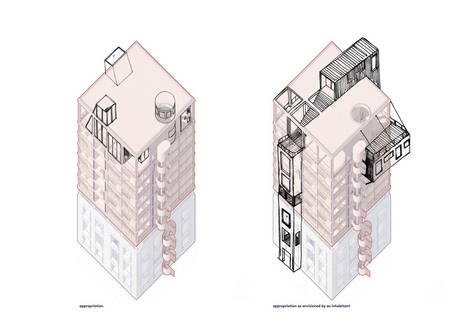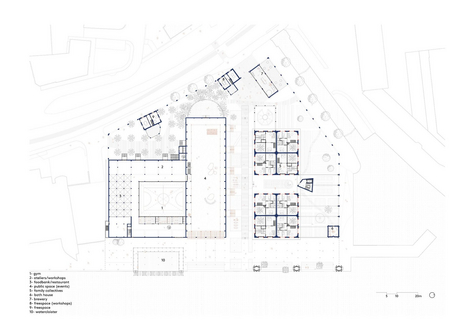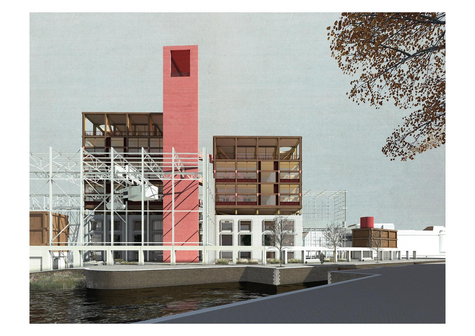Art Kallen
- Contact
- LinkedIn
A Certain Anomaly
Giving the deviant ‘institute’ Landbouwbelang a future in Maastricht
Collective history
After thirty years of vacancy Landbouwbelang was squatted in 2002 and since that time has been built up towards an institute for alternative culture in Maastricht. These days Landbouwbelang’s ensemble of buildings has come to represent a collective history of Maastricht which reaches further than the squat of the past twenty years. The site and its buildings show how the squatters community has granted a function to the vacant industrial monument. In addition, it shows that the place has been used as a cargo location of the original agricultural cooperation Landbouwbelang for years. It shows that the northern part belonged to the paper factory. Moreover, it shows how Landbouwbelang was positioned on an island between the river Maas and the canal Luik-Maastricht, with the lock-keepers houses as relics of that time. Underneath all of these histories, we find historical layers which are not directly tangible. For five hundred years, this place housed the Sint-Antonietenklooster, situated right on the edge of Maastricht against the city wall.
The squatting, the industrial activity and the monastic life which took place at the Landbouwbelang site all have in common that they deviated from the surrounding life at that time. In the very centre of the urban tissue of Maastricht, the Landbouwbelang site has always been a bastion that accommodated a tradition of subculture. It represents an alternative way of living that is in contrast with the Leitkultur: `het sjiek en sjoen’. It is an anomaly in Maastricht, but not ‘just’ a certain anomaly.
Redevelopment
The current tender leaves no room to maintain the embodied variegation of the site in the future. In the tender, the building ensemble is placed within a financial logic of a larger area development. Thereby it is depriving the location of her autonomy and in turn is neglecting her unique role in the city. The financial conditions dictate a redevelopment that in practice can only been found in a voluminous and pragmatic housing programme. Market conformity will be leading, thereby irrevocably ending this piece of collective history.
Alternative future
The imminent redevelopment motivates this design of an alternative future. In this project I value the existing buildings and the history they entail. I draw parallels between the existing use and the historical uses on site. Next to the current use of Landbouwbelang and the rooted value this has for an alternative culture in Maastricht, the parallel with history makes apparent how the current subcultural identity is engrained in the history of the site. At this crossroads for both the Landbouwbelang site, and for the city of Maastricht, this design shows a way to make the development of Landbouwbelang an acknowledgement of the value of the existing city and its histories.
In the design large parts of the existing buildings are reused to both expand on existing programme and add new functions. By making interventions to the primarily concrete casco, I intensify existing functions and add special housing conditions. These are housing conditions of a collective nature that mirror the history of both the life in the squatting community and the monastery. In this way, a future is created where preservation and new construction are interwoven to show the layered history of this site, while making space for current and future users to add a new layer. The rational framework that I add as an architect gives a firm basis for further appropriation by the users. These rational additions create a new breeding ground for the agency of that the squatters took on site. With that the additions respect the tradition of subculture as a contrasting addition to the city centre of Maastricht.
Graduation date: 24 February 2022
Graduation committee: Christopher de Vries, Milad Pallesh, Machiel Spaan (mentor)
Additional members for the exam: Jarrik Ouburg, Lisette Plouvier
